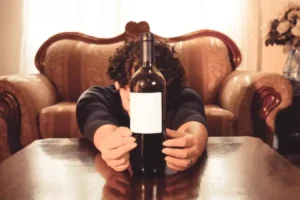
Drinking to excess also increases your risk of obesity, which poses quite a few health risks of its own. Warfarin (Jantoven) is a commonly used blood thinner (a coumarin oral anticoagulant). It is used to prevent or treat blood clots in veins, arteries, or the heart, which can reduce the risk of a stroke, heart attack, or other serious conditions. While alcohol may have blood thinning effects, it may also increase the risk of cardiovascular conditions and blood clots. The above review noted that low to moderate alcohol consumption can decrease platelet activation and aggregation, meaning it may reduce blood clotting in a similar way to blood thinning medications. Alcohol is itself a blood thinner, and it also increases the time your blood thinner medication stays in your system.
- Taking over-the-counter bismuth subsalicylate (Pepto Bismol and others) can also increase bleeding with blood thinners because it falls into the same medication category as aspirin.
- Moreover, government authorities do not monitor herbs and supplements as closely as food and drugs.
- For instance, they might eat a healthier diet and be more active than those who don’t drink red wine.
- Mixing alcohol and Brilinta could lead to increased dizziness.
Blood Thinners and Alcohol
That all said, a healthy diet and exercise can provide all those benefits without any of the risks of alcohol. An imbalance in that ratio can increase your clotting risk or swing the other way and increase your bleeding risk. Some foods and supplements are believed to have some blood thinning properties. However, they are not regulated by the Food and Drug Administration (FDA), and the concentration of active compounds in supplements is not consistent. Unsurprisingly, the main side effect of blood thinners is bleeding. People who take blood thinners will notice that a cut or nick takes longer to stop bleeding and that they bruise more easily.
So, is the reward worth the risk?
- There, he teaches and works with cardiovascular and medical trainees as well as medical students.
- Drinking less (or not at all) will always be better for you than even moderate drinking.
- On their own, blood thinners can create a number of health risks and increase the chances of serious bleeding.
When you cut yourself, that’s what seals your wound and keeps you from losing too much blood. So even tiny cuts or bruises will bleed a lot more if you take these drugs. Although moderate amounts of red wine may be beneficial for your cardiovascular health overall, there are some potential disadvantages of red wine wine and blood thinners to watch out for. Drinking more than 3 drinks at a time may also raise blood-pressure and lead to a short-term boost in cortisol production. Cortisol is the stress hormone responsible for your fight-or-flight response. More cortisol means more oxidative stress, increased heart rate, and barriers to decision-making.
How to Safely Drink Wine on Blood Pressure Medication

According to one case report, one person who was taking very high doses of feverfew (800 mg, three times daily) experienced vaginal bleeding and a longer menstrual cycle. A review from 2015 notes that some dietary supplements, including garlic, may affect platelet function and coagulation. People have long used turmeric for culinary and medicinal purposes.
Participating in risky activities
Experts suggest moderate alcohol consumption is generally safe while taking blood thinners. If you’re taking blood thinners or will be soon, quitting drinking is critically important. Platelets are small cells in the blood that are essential for clotting.

What else thins your blood and increases your risk of bleeding? Some people take medications to prevent the blood from clotting or slow the clotting process. They may refer to them as blood thinners, anticoagulants, or antiplatelet drugs. A doctor may prescribe these medications to reduce a person’s risk of heart attack and stroke. Red wine contains a substance called resveratrol, an antioxidant flavonoid that may lower bad cholesterol levels and thereby minimize the potential for blood clots.
Ask the Expert: Common Questions About Alcohol and Blood Thinners
The review authors highlighted that previous research has suggested drinking significant amounts of alcohol every day has links to a higher risk of developing high blood pressure. They also discussed studies that indicated higher levels of alcohol consumption have associations with an increased risk of stroke, atrial fibrillation, and heart failure. In low to moderate amounts, it can act as an anticoagulant and reduce your risk of blood clots. Blood thinners are medications that treat and prevent blood clots.
How does alcohol interfere with the blood clotting process?


Leave a Reply